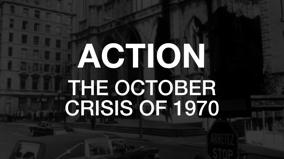New release
Coming
None
Imperfect Union: Canadian Labour and the Left - Part 3 - Falling Apart and Getting Together
1989
53 min
Leaving soon
World War II turns Canada into an industrial power, and creates a mass trade-union movement. Mackenzie King responds with unemployment insurance and full legal status for unions. In 1944, the Co-operative Commonwealth Federation comes to power in Saskatchewan, under Tommy Douglas, the first socialist government in North America. With the formation of the Canadian Labour Congress in 1956, CCF and CLC energies are directed toward the formation of the New Democratic Party in 1961. Part 3 of the series.

Details
World War II turns Canada into an industrial power, and creates a mass trade-union movement. Mackenzie King responds with unemployment insurance and full legal status for unions. In 1944, the Co-operative Commonwealth Federation comes to power in Saskatchewan, under Tommy Douglas, the first socialist government in North America. With the formation of the Canadian Labour Congress in 1956, CCF and CLC energies are directed toward the formation of the New Democratic Party in 1961. Part 3 of the series.
-
directorArthur Hammond
-
producerArthur Hammond
-
scriptArthur Hammond
-
executive producerJohn SpottonJohn Taylor
-
soundPeter Clements
-
editingJack MorbinJohn Kramer
-
sound editingAndré GalbrandJean-Pierre ViauAndré Chaput
-
re-recordingHans Peter StroblAdrian Croll
-
narratorJill Frappier
Education
Pedagogical evaluations and study guides are only available to CAMPUS subscribers.
CAMPUS
Features designed specifically for teachers. Learn more
Already subscribed? Sign in











